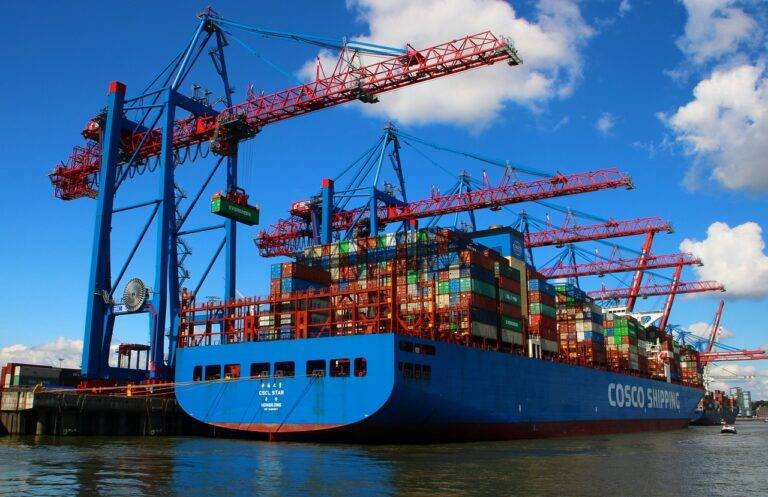Industry Insights: Strategies for Navigating Supply Chain Disruptions in the Electrical Equipment Sector
sky247 login, 11x play, play99exch com login password: Industry Insights: Strategies for Navigating Supply Chain Disruptions in the Electrical Equipment Sector
In the fast-paced world of the electrical equipment industry, supply chain disruptions can have a significant impact on businesses. From delays in production to increased costs, these disruptions can result in lost revenue and unhappy customers. However, with the right strategies in place, companies can effectively navigate supply chain disruptions and minimize their impact. In this article, we will explore some key insights and strategies that companies in the electrical equipment sector can implement to overcome supply chain challenges.
Understanding the Challenges
The electrical equipment sector is highly competitive, with companies facing a myriad of challenges in their supply chains. These challenges can range from raw material shortages to transportation delays and labor shortages. Additionally, rapid changes in demand and shifts in market dynamics can further complicate supply chain management. To effectively navigate these challenges, companies must have a thorough understanding of their supply chain processes and potential vulnerabilities.
Key Insights for Success
1. Develop Strong Relationships with Suppliers: Building strong relationships with suppliers is crucial for ensuring a reliable and efficient supply chain. By working closely with suppliers and maintaining open lines of communication, companies can better anticipate potential disruptions and collaborate on finding solutions.
2. Diversify Your Supplier Base: Relying on a single supplier can leave a company vulnerable to disruptions. By diversifying their supplier base, companies can spread risk and ensure a more resilient supply chain. This can involve sourcing from multiple suppliers in different geographic regions or exploring alternative sources for critical components.
3. Invest in Technology: Technology plays a vital role in modern supply chain management. Companies can leverage digital tools such as supply chain visibility software, predictive analytics, and artificial intelligence to improve decision-making and mitigate risks. By investing in technology, companies can enhance their agility and responsiveness to supply chain disruptions.
4. Monitor Market Trends: Staying informed about market trends and industry developments is essential for proactive supply chain management. Companies should keep abreast of changes in demand, pricing fluctuations, regulatory updates, and geopolitical events that could impact their supply chain. By monitoring market trends, companies can anticipate risks and take preemptive action to mitigate disruptions.
5. Implement Contingency Plans: Despite the best-laid plans, supply chain disruptions can still occur. Companies should have robust contingency plans in place to respond swiftly to unexpected events. These plans should outline clear protocols for handling disruptions, allocating resources, and communicating with stakeholders. By being prepared, companies can minimize the impact of disruptions and maintain business continuity.
6. Collaborate with Industry Partners: Collaboration with other industry partners, such as logistics providers, trade associations, and government agencies, can provide valuable support during supply chain disruptions. By working together, companies can share resources, best practices, and insights to collectively address challenges and strengthen the overall resilience of the industry.
FAQs
Q: How can companies assess the resilience of their supply chain?
A: Companies can assess the resilience of their supply chain by conducting risk assessments, mapping out their supply chain processes, and identifying potential vulnerabilities. By analyzing their supply chain from end to end, companies can pinpoint areas of weakness and develop strategies to enhance resilience.
Q: What role does data analytics play in supply chain management?
A: Data analytics plays a crucial role in supply chain management by providing companies with real-time insights into their operations. By analyzing data on supplier performance, inventory levels, and demand forecasts, companies can make informed decisions and optimize their supply chain processes. Data analytics can also help companies identify patterns and trends that could signal potential disruptions, enabling them to take proactive measures.
Q: How can companies leverage sustainability initiatives to improve supply chain resilience?
A: Sustainability initiatives can help companies improve their supply chain resilience by promoting transparency, ethical sourcing practices, and environmental stewardship. By integrating sustainability principles into their supply chain management, companies can build stronger relationships with suppliers, reduce risk, and enhance their reputation among customers and stakeholders. Additionally, sustainable practices can drive innovation and efficiency, leading to long-term cost savings and resilience.
In conclusion, navigating supply chain disruptions in the electrical equipment sector requires a strategic and proactive approach. By developing strong relationships with suppliers, diversifying their supplier base, investing in technology, monitoring market trends, implementing contingency plans, and collaborating with industry partners, companies can mitigate risks and build a more resilient supply chain. By following these key insights and strategies, companies can effectively navigate challenges, adapt to changing market conditions, and maintain a competitive edge in the industry.







